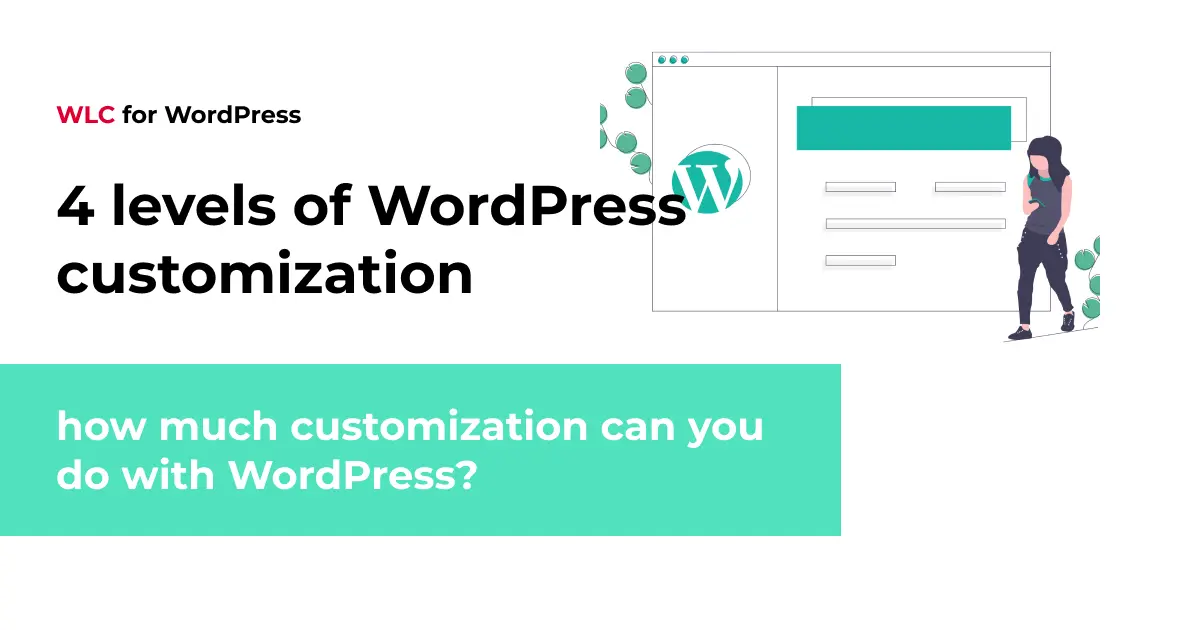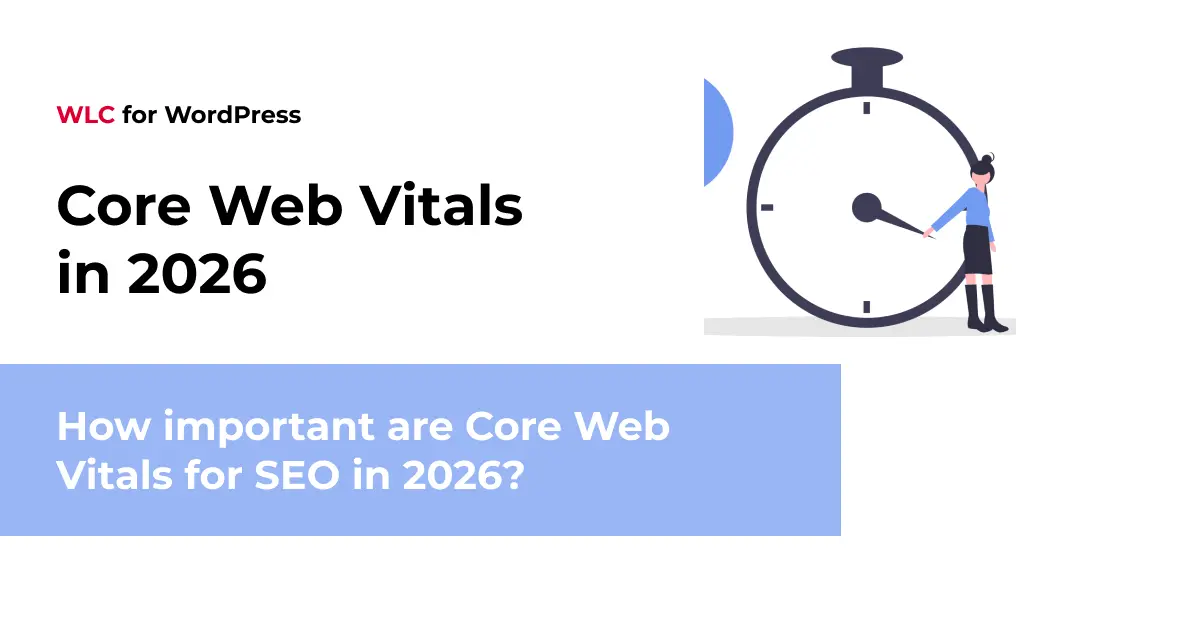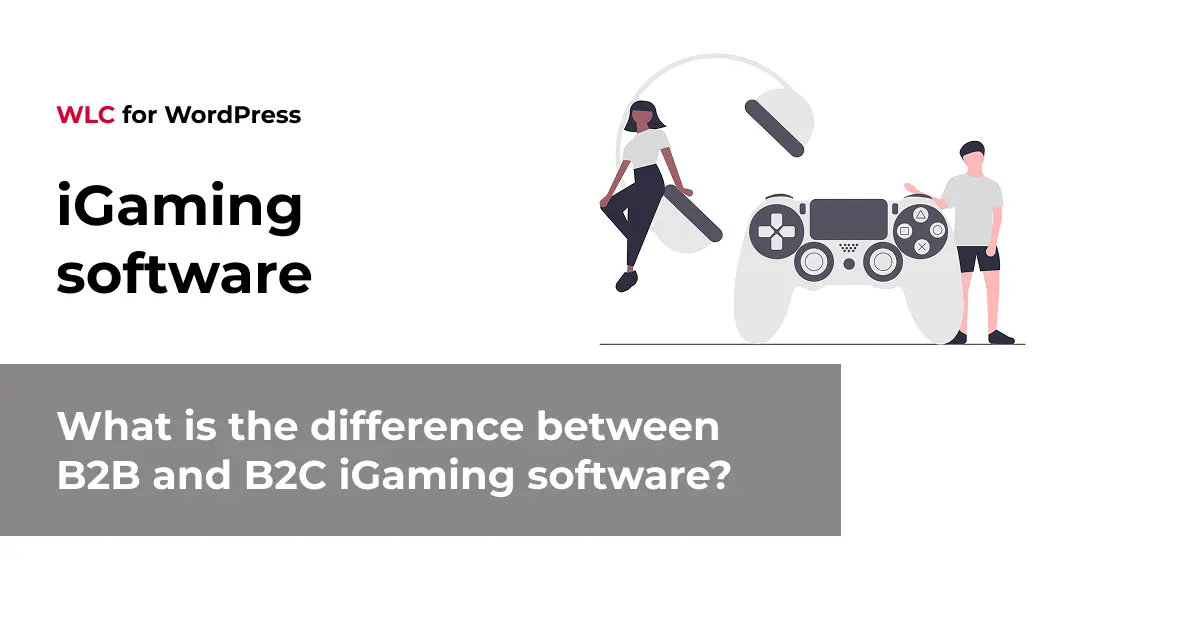Category: WordPress
4 levels of WordPress customization – how much customization can you do with WordPress?

Understanding WordPress customization potential
WordPress has evolved dramatically from its origins as a simple blogging platform to become the world’s most versatile content management system. Today, it powers approximately 43% of all websites on the internet, ranging from simple blogs to complex enterprise solutions. This remarkable adaptability stems from WordPress’s open-source architecture that welcomes customization at every level.
The customization spectrum spans from basic adjustments anyone can make through the admin dashboard to sophisticated development requiring expert coding skills. What makes WordPress truly exceptional is how it scales with your needs—you can start with simple modifications and progressively enhance functionality as your business grows.
Businesses choose WordPress for custom solutions because it provides an established, secure foundation that can be tailored to specific requirements without starting from scratch. This balance of stability and flexibility makes it an ideal platform for WordPress custom development projects of any scope. The robust ecosystem of developers, documentation, and resources ensures ongoing support for even the most specialized implementations.
What are the different levels of WordPress customization?
WordPress customization can be categorized into four distinct tiers, each offering increasing levels of personalization and technical complexity. Understanding these different levels helps you determine the appropriate approach for your specific business needs.
Basic customization involves using WordPress’s native settings and controls. This includes adjusting colours, uploading logos, arranging menus, creating pages, and organizing content categories. These modifications require no coding knowledge and can be accomplished entirely through the WordPress admin dashboard.
At the intermediate level, customization expands to include theme adjustments and plugin installation. This might involve using theme customizers to modify layouts, adding functionality through off-the-shelf plugins, and making minor CSS adjustments through user-friendly interfaces. Some basic knowledge of HTML and CSS is helpful but not always necessary.
Advanced customization moves into the realm of custom theme development, where designers and developers create bespoke designs implemented through custom WordPress themes. This level often involves:
- Creating unique page templates
- Building custom navigation systems
- Developing specialized content types
- Implementing complex design elements
At the enterprise level, customization includes developing custom plugins, creating complex integrations with external systems, and sometimes modifying WordPress core functionality. This tier requires comprehensive WordPress development workflow expertise and is typically employed for specialized business applications, e-commerce platforms, or unique digital experiences that can’t be achieved with existing solutions.
Can you customize WordPress without coding?
Yes, you can extensively customize WordPress without writing a single line of code. The platform offers numerous no-code customization options that allow non-technical users to create sophisticated websites. This democratization of web development has been a key factor in WordPress’s widespread adoption.
The built-in WordPress Customizer provides a user-friendly interface to modify various aspects of your site’s appearance. You can preview changes in real-time before publishing them, making it easy to experiment with different looks without risk. Most modern themes extend this customizer with additional options for layouts, typography, and styling.
Visual page builders have revolutionized WordPress customization by offering drag-and-drop interfaces for creating complex layouts. Tools like Elementor, Divi, and Beaver Builder allow you to:
- Design unique page layouts with multi-column sections
- Add interactive elements and animations
- Create responsive designs that work on all devices
- Customize individual pages independently of your theme
Pre-built themes often come with extensive configuration options through dedicated admin panels. These allow you to customize headers, footers, sidebars, and other site elements without touching code. Premium themes typically offer more customization possibilities than free alternatives.
While no-code options are powerful, they do have limitations. For truly unique functionality or design requirements, custom WordPress custom development may still be necessary. However, the combination of the WordPress Customizer, page builders, and configurable themes means you can achieve remarkably sophisticated results without coding knowledge.
How do custom plugins extend WordPress functionality?
Custom plugins represent one of the most powerful ways to extend WordPress functionality, enabling virtually unlimited possibilities for tailoring the platform to specific business requirements. Unlike off-the-shelf plugins, custom solutions are built precisely for your unique needs, eliminating unnecessary features while adding exactly what your project demands.
The development process for custom plugins typically begins with a detailed requirements analysis, followed by architectural planning, development, testing, and deployment. Experienced WordPress developers will create a plugin structure that follows best practices in programming, ensuring compatibility, security, and performance. The plugin can then be updated and maintained alongside your WordPress installation.
The benefits of tailor-made plugins versus pre-built options include:
- Precise functionality that matches exact business requirements
- Streamlined code without bloat from unused features
- Enhanced security with fewer vulnerabilities
- Better performance optimization
- Full control over updates and maintenance
- Seamless integration with existing systems
Custom plugin development can enable a vast range of functionalities, including specialized e-commerce features, unique content management workflows, complex booking systems, custom user roles and permissions, bespoke payment gateways, third-party integrations, and automated business processes. For instance, a custom plugin could connect your WordPress site with proprietary business software, creating a seamless data exchange that wouldn’t be possible with standard plugins.
For businesses with specialized needs, custom plugin development offers a path to create exactly the WordPress experience required, without compromises or unnecessary complexity.
What are the limitations of WordPress customization?
Despite WordPress’s impressive flexibility, certain limitations exist that businesses should consider when planning extensive customization projects. Understanding these constraints helps set realistic expectations and determine when WordPress is the right solution for your needs.
Performance considerations become increasingly important as customization levels increase. Excessive plugins, complex custom code, or inefficient database queries can slow down your site. This is especially true with visual page builders, which sometimes generate code that isn’t optimized for speed. Experienced developers can mitigate these issues through performance optimization techniques, but they require careful attention.
Maintenance requirements generally increase proportionally with customization complexity. Highly customized WordPress sites need regular updates, security patches, and compatibility checks. Custom themes and plugins require ongoing website maintenance to ensure they remain compatible with WordPress core updates. This creates a long-term commitment to technical upkeep that should be factored into project planning.
There are situations where alternative solutions might be more appropriate than a heavily customized WordPress implementation:
- Extremely complex applications with heavy computational requirements
- Projects requiring extensive real-time functionality
- Very large-scale enterprise applications with specialized security needs
- Platforms requiring unusual database structures incompatible with WordPress’s architecture
Even with these limitations, WordPress remains remarkably adaptable for most business requirements. The key is working with experienced WordPress developers who understand these constraints and can advise on the most effective approach for your specific needs.
How much does custom WordPress development typically cost?
The cost of custom WordPress development varies significantly based on several key factors. Understanding these variables helps businesses budget appropriately and determine the right level of investment for their specific project needs.
Project scope fundamentally influences cost—a simple brochure website with custom design might start around £5,000-£10,000, while complex e-commerce website development platforms or membership sites with extensive custom functionality can range from £15,000 to £50,000 or more. The number of unique page templates, custom post types, and specialized features all affect the overall investment required.
Technical complexity directly impacts development costs. Projects requiring custom database structures, third-party integrations, complex user management systems, or specialized e-commerce functionality will require more development time and expertise. Similarly, performance optimization for high-traffic sites adds additional costs but delivers crucial value.
Developer expertise significantly affects both cost and quality. Experienced WordPress developers command higher rates but typically deliver more efficient, maintainable, and robust solutions. Working with established agencies specializing in WordPress custom development often provides better long-term value than choosing the lowest-priced option.
Ongoing maintenance considerations should factor into your budget planning. Custom WordPress implementations typically require regular updates, security monitoring, performance optimization, and occasional bug fixes. Many development partners offer maintenance packages, which might range from £100-£500 monthly depending on site complexity and support level.
When evaluating proposals for WordPress development projects, focus on value rather than simply comparing price points. The initial development cost represents just one component of the total investment in your digital platform.
Key takeaways: Maximizing WordPress customization for your business
WordPress offers remarkable customization flexibility that can be tailored to virtually any business requirement. From simple styling adjustments to complex enterprise applications, the platform’s adaptability continues to make it the preferred choice for organizations of all sizes looking to establish a powerful web presence.
Working with experienced developers is crucial for successful WordPress customization projects. Professional WordPress specialists bring not just technical knowledge but also strategic insight about which customizations will best serve your business goals. They can help you navigate the balance between using existing solutions and developing custom components to maximize both efficiency and effectiveness.
Determining the right level of customization requires careful consideration of both immediate needs and future growth. Start by clearly defining your business requirements, user expectations, and content management needs. Then evaluate whether these can be met through:
- Basic WordPress settings and configurations
- Theme customization and off-the-shelf plugins
- A custom WordPress theme with standard plugins
- Full custom development with bespoke plugins
The ideal approach often combines elements from multiple levels—perhaps using an established theme framework but adding custom functionality through bespoke plugin development. This balanced methodology delivers unique capabilities while leveraging WordPress’s proven foundation.
Remember that WordPress customization is best viewed as an ongoing journey rather than a one-time project. As your business evolves, your digital platform can grow alongside it, with new customizations implemented to address changing requirements. By partnering with skilled WordPress developers who understand your business objectives, you can continuously refine and enhance your website to maintain competitive advantage in your market.
Whether you need simple design adjustments or comprehensive custom WordPress website development, WordPress provides the flexibility to create exactly the digital experience your business and customers demand.
Looking to unlock the full potential of WordPress for your business? Our team at White Label Coders specializes in complex custom development and enterprise-level integrations. Contact us to discuss your project.






